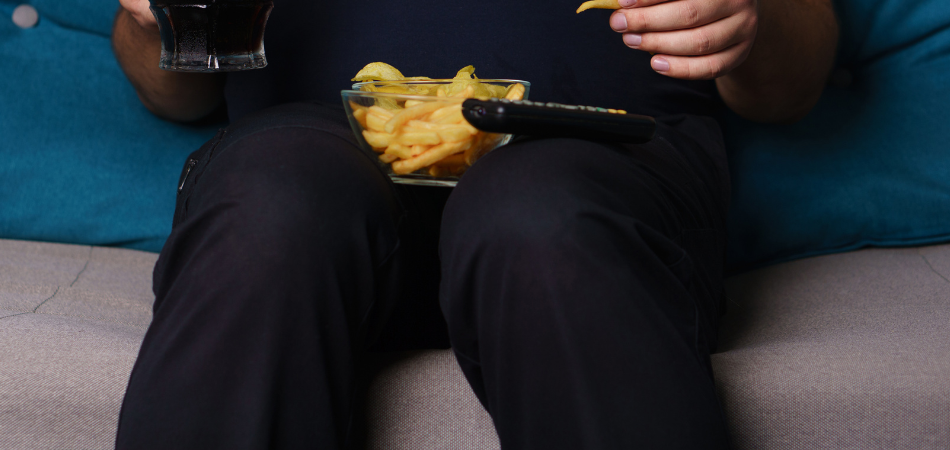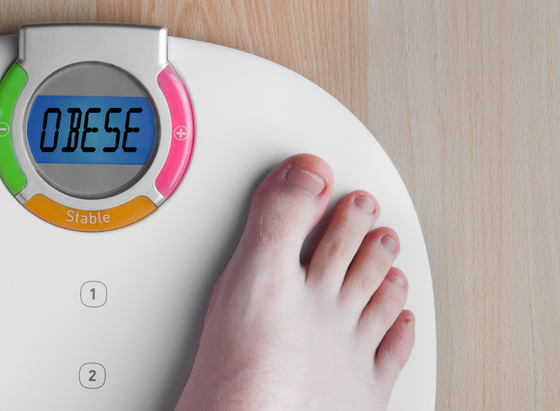Food addiction
Food addiction is a real and dangerous addiction that affects many people across the UK. Its symptoms include an ungovernable urge to eat, feeling out of control around food, and experiencing guilt or shame after eating. When you are addicted to food, your condition can make you feel totally helpless but there is help available.

What is food addiction?
Food addiction is a behavioural addiction, characterised by an uncontrollable urge to eat, regardless of hunger or nutrition. If you are addicted to food, you may binge eat (eat large amounts of food in a short period of time), compulsively overeat or eat secretly so that others don’t see how much you’re consuming.
Food addiction is a serious condition that affects around 2% of people with only one in four sufferers seeking food addiction help. Food addiction is three times more prevalent than Anorexia Nervosa and Bulimia Nervosa combined and is both a cause and symptom of mental health disorders, as well as a disorder in its own right.
How does food addiction develop?
On a physical level, when you eat food, particularly food with high levels of sugar, salt and fat, it triggers a release of dopamine in the brain. Dopamine is a neurotransmitter that helps to control the brain’s reward and pleasure centres. Much in the same way as taking drugs or having sex, those with an addiction to food chase this dopamine high and the associated pleasure that comes with it.
On a psychological level, there are many different routes to food addiction. For some people, their relationship with food begins in childhood when they use food as a way to cope with emotions such as sadness, anger or boredom. For others, emotional eating can develop in adulthood as a way to cope with stress or other difficult life circumstances.
The problem with food addiction is that, unlike other activities that release dopamine, eating is essential for survival. This means that you can’t just give up food altogether as you could with other addictive substances. Instead, you need to learn how to develop a healthy relationship with food and your body.
What are the effects of food addiction?
The negative impact of food addiction can be far-reaching, affecting every aspect of your life from your physical health to your mental well-being, relationships, work and social life.
Physical health effects:
- Weight gain
- Obesity
- Diabetes
- High blood pressure
- Heart disease
- Increased risk of stroke
Mental health effects:
- Anxiety
- Depression
- Low self-esteem
- Feelings of shame, guilt and hopelessness
Food addiction can also lead to social isolation and exacerbate various mental health disorders which lead one in three sufferers to consider suicide at some point.
In terms of other aspects of your life, food addiction can also have a negative impact on:
Your relationships: When you are addicted to food, you may find it difficult to be honest with loved ones about your eating habits or may isolate yourself from social activities because you’re ashamed of your weight or body.
Your work life: Food addiction can lead to absenteeism as well as issues with concentration, motivation and productivity due to the mental and physical effects of the addiction.
Your social life: Food addiction can also lead to social isolation and feelings of shame which can make it difficult to go out and socialise, particularly if there is food involved.
Your finances: Food addiction can be expensive, both in terms of the cost of the food itself as well as any associated health problems. It can also lead to issues with debt and money management.
Who is most at risk of becoming addicted to food?
There is no one-size-fits-all answer to this question as food addiction can affect anyone, regardless of age, gender, race or background. However, there are certain factors that can make you more vulnerable to developing a food addiction and many of the people who undergo food rehab will have some or all of these factors. The most common include:
A family history of addiction
If you have a parent or other close relative who is addicted to food or another substance, you are more likely to develop an addiction yourself.
A history of trauma or abuse
Experiencing trauma or abuse, either in childhood or adulthood, can also make you more likely to turn to food as a way of coping with the pain.
A history of mental health problems
Underlying mental health disorders can also increase the chances of you developing a food addiction as a way of self-medicating.
A history of dieting
If you have been on multiple diets, you may be more likely to develop an unhealthy relationship with food as a result. This is because dieting can lead to feelings of deprivation which can trigger binge eating.
Am I addicted to food?
If you are worried that you may be addicted to food, there are a few questions you can ask yourself:
- Do I continue to eat even when I’m not hungry?
- Do I feel out of control around food?
- Do I feel guilty or ashamed after eating?
- Do I spend a lot of time thinking about food?
- Do I eat to cope with my emotions?
- Have my eating habits caused problems in my life?
If you answered yes to more than one of these questions, you may need professional food addiction help. At Sanctuary Lodge, we offer a comprehensive food rehab programme which can help you break free from your addiction and develop a new and healthier relationship with food.
Lies your food addiction will try to tell you
Food addiction is a powerful and destructive force but it is also very cunning. It is important to understand that your food addiction doesn’t want you to get better, it wants you to stay addicted so that it can continue to control you. As a result, your food addiction will try to convince you of a number of lies in order to keep you trapped and prevent you from going to food addiction rehab. Some of the most common lies your food addiction will tell you include:
“You’re not really addicted to food, you can stop anytime you want”
This is perhaps the most damaging lie that your food addiction can tell you. It is designed to convince you that your addiction is not real and that you are in control. The truth is, food addiction is a real and serious problem and if you could stop anytime you want, you already would have when your condition began to cause issues.
“You don’t need help, you can do this on your own”
This is another harmful lie which is designed to prevent you from reaching out for food addiction help. Your addiction wants to isolate you from all the people who want to help. Alongside this lie, it will try to make you feel embarrassed about your addiction in order to stop you from speaking to your loved ones or entering food rehab.
“Treatment won’t work; you’ve tried before and it didn’t help”
This lie is often told to people who have been through food addiction treatment before but relapsed. Your addiction will try to convince you that rehab for food addiction doesn’t work so you don’t seek help. The truth is, food addiction rehab does work but it takes time, effort and commitment. Just because you relapsed before doesn’t mean that treatment wasn’t effective or that it can’t be successful in the future, it just means that you need more time to recover.
How can food addiction be treated?
At Sanctuary Lodge, there are two main stages in our food addiction treatment programmes: food addiction: rehab and aftercare.
Food addiction rehab
During food rehab, you will undergo a range of different addiction therapies, recovery activities and other treatment sessions while staying as a resident at our food addiction centre. This intensive treatment will help you to get to the root of your food addiction and start to develop new, healthier coping mechanisms.
Some of the different treatment approaches include:
- One-to-one counselling
- Group therapy
- Cognitive Behavioural Therapy (CBT)
- Family therapy
- Yoga therapy
- Nutritional education
We also provide a bespoke diet and exercise programme which is designed to help you develop a healthier relationship with food.
Aftercare
After you have completed our food addiction rehab programme, you will be supported through our aftercare programme. Aftercare can take a number of different forms but at Sanctuary Lodge it includes weekly group therapy sessions which are designed to help you through difficult moments and achieve long-term recovery from food addiction.
If you are struggling with food addiction, we urge you to reach out for help. Our food addiction treatment programmes could be the key to helping you overcome your addiction and start living a healthier, happier life.






